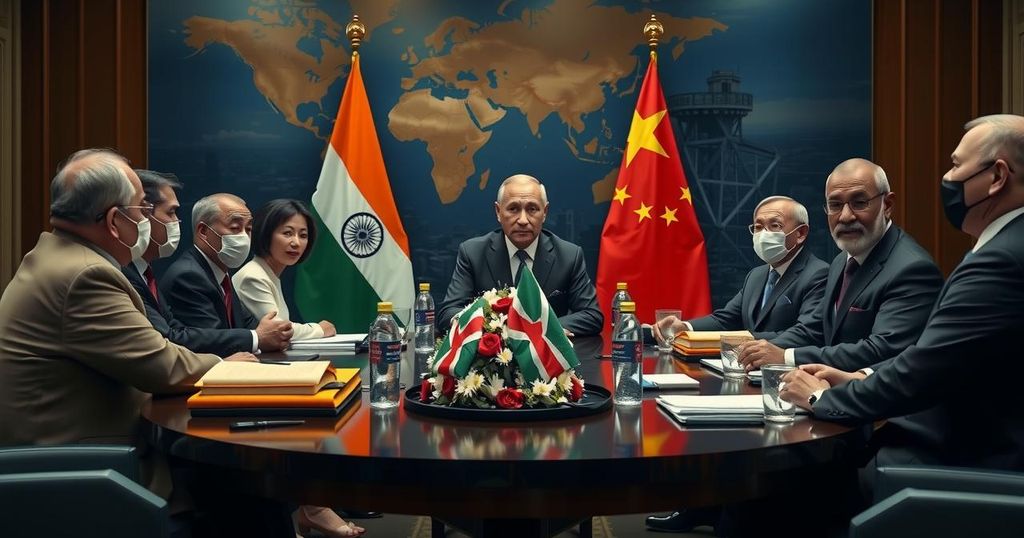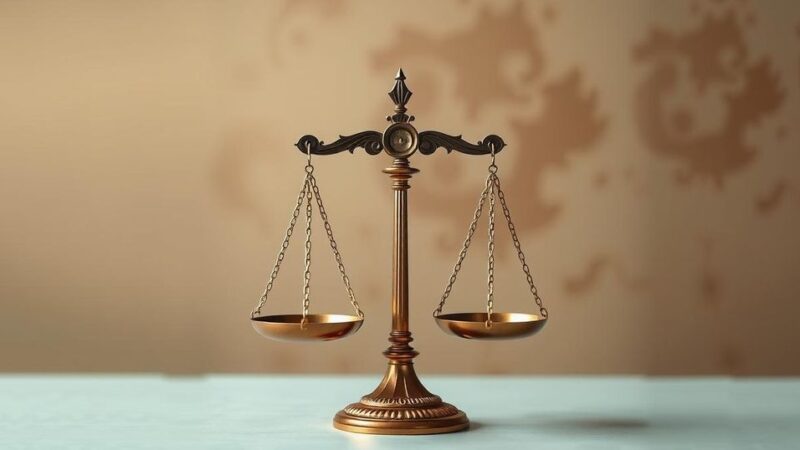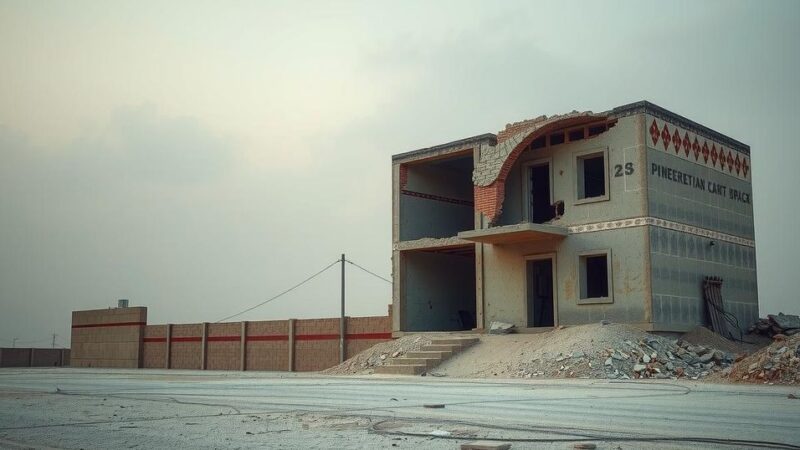During the BRICS summit in Kazan, Indian Prime Minister Narendra Modi advocated for a resolution to the Ukraine conflict, while Chinese President Xi Jinping highlighted close ties with Russia. The summit aimed to project Russia’s influence amid Western isolation efforts, with leaders discussing strategies for a multipolar world and alternatives to the SWIFT payment system.
At the recent BRICS summit held in Kazan, Russia, Indian Prime Minister Narendra Modi advocated for a swift resolution to the ongoing Ukraine conflict during his discussions with President Vladimir Putin. Chinese President Xi Jinping praised the deep-rooted ties between China and Russia, highlighting their mutual support amid a turbulent global landscape. Putin is hosting approximately 20 global leaders in a three-day gathering aimed at demonstrating that Western efforts to isolate Russia due to its actions in Ukraine have been unsuccessful. Modi emphasized the importance of peaceful resolutions, stating, “We believe that disputes should only be resolved peacefully. We totally support efforts to quickly restore peace and stability.” In contrast, President Xi referred to the Sino-Russian relationship as a “profound friendship.” Since the beginning of the Ukraine crisis, India has navigated a complex diplomatic approach, offering humanitarian aid to Ukraine while refraining from overtly condemning Russia. Modi’s previous visits to both Kyiv and Moscow signify India’s ambition to act as a mediator. Meanwhile, South African President Cyril Ramaphosa reaffirmed Russia’s value as a historical ally during his meeting with Putin, remarking, “We continue to see Russia as a valued ally, as a valued friend, who supported us right from the beginning: from the days of our struggle against apartheid, right through to now.” This summit represents the largest international event in Russia since the Ukraine conflict intensified in 2022. With additional meetings scheduled with officials from Turkey and Iran, as well as U.N. Secretary General Antonio Guterres, key topics on the agenda include proposing a BRICS alternative to SWIFT and addressing the increasing tensions in the Middle East. Analysts suggest that by gathering leaders from the BRICS nations, Moscow seeks to illustrate that it retains a network of allies, countering claims of isolation enforced by Western nations. Despite the backdrop of the International Criminal Court’s arrest warrants for Putin, even amid heightened security presence due to past Ukrainian drone attacks in the region, the Kremlin aims to position itself as a formidable player in global geopolitics, showing that a multipolar world order is indeed a reality. The BRICS group, which began with four founding members in 2009, has since expanded to include various emerging nations, although faces internal conflicts, particularly between major members such as India and China. Notably, Brazilian President Luiz Inacio Lula da Silva withdrew from attending the summit due to a serious health issue.
The BRICS summit is a significant geopolitical gathering that involves leaders from emerging economies, including India, China, Russia, and South Africa, among others. Established to foster economic cooperation and political dialogue among member states, BRICS has faced challenges, particularly in the context of geopolitical tensions arising from Russia’s actions in Ukraine. The summit serves as a platform for member nations to express solidarity in the face of Western sanctions and to seek alternative economic systems that can lessen dependence on Western financial networks. Furthermore, the dynamics within the group, especially between India and China, play a crucial role in shaping its collective strategies. The backdrop of heightened security within Russia due to ongoing conflicts adds complexity to the gathering, wherein members also aim to address burgeoning international conflicts beyond Ukraine.
In conclusion, the recent BRICS summit in Kazan underscored the alliance’s efforts to reinforce collective support for Russia amid ongoing geopolitical tensions. Leaders, including Modi and Xi, positioned their countries as advocates for peace while expressing solidarity with Moscow. The summit not only highlighted existing partnerships but also aimed to project a unified front against perceived Western isolation tactics. As the world watches these developments, the future trajectory of BRICS and its internal dynamics will significantly impact global geopolitical relations.
Original Source: www.courthousenews.com






